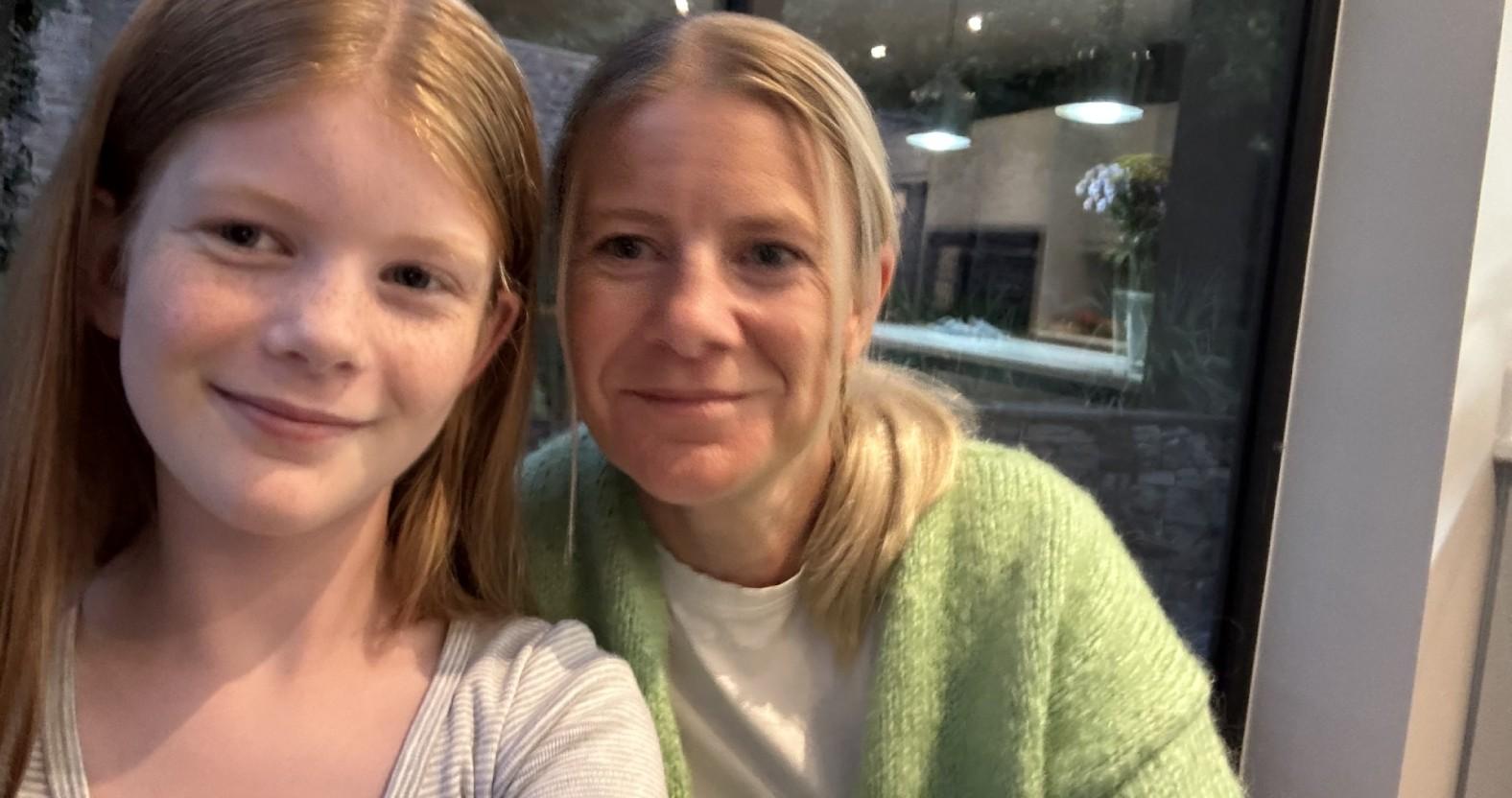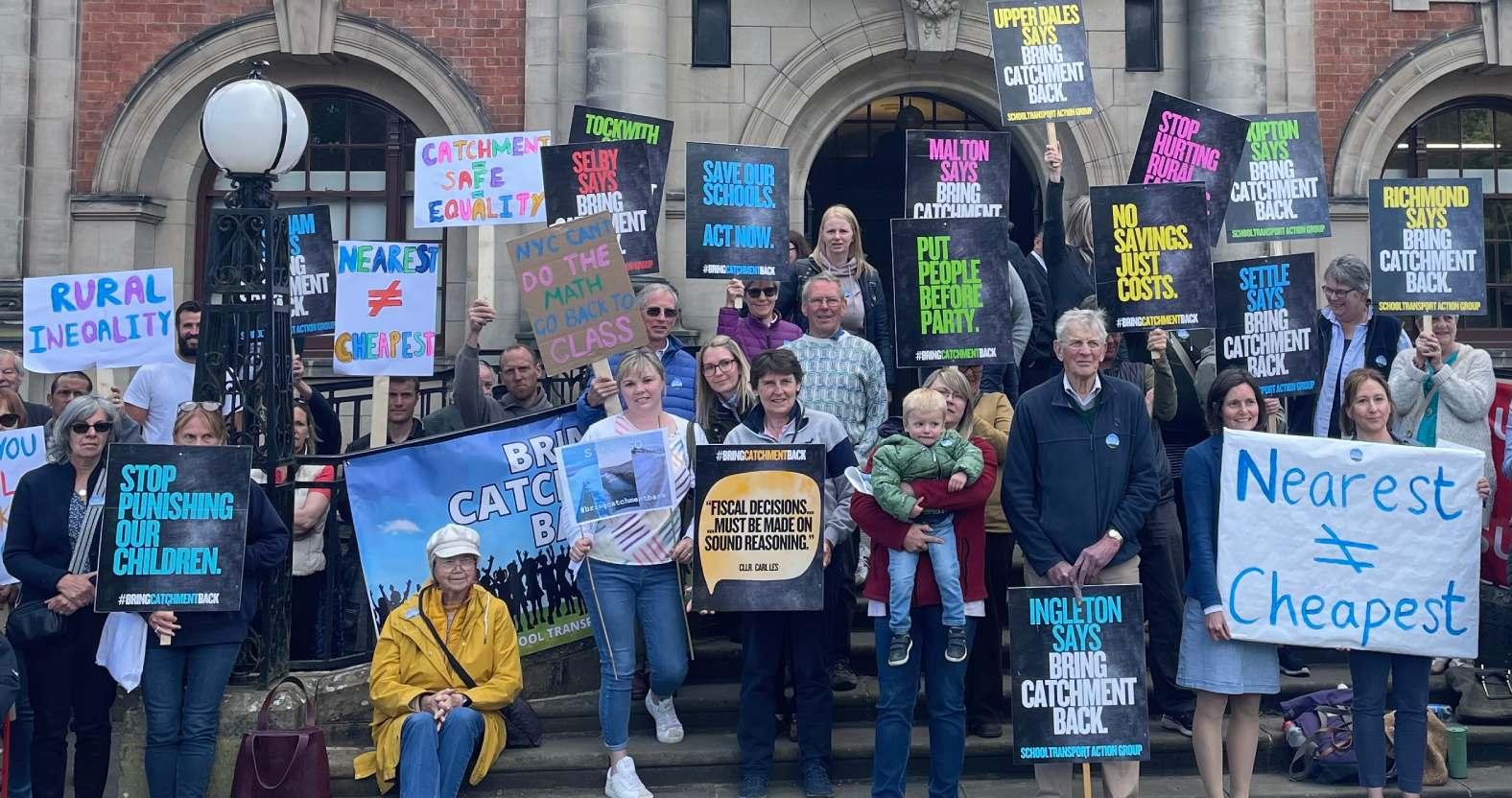Subscribe to trusted local news
If you are accessing this story via Facebook but you are a subscriber then you will be unable to access the story. Facebook wants you to stay and read in the app and your login details are not shared with Facebook. If you experience problems with accessing the news but have subscribed, please contact subscriptions@thestrayferret.co.uk. In a time of both misinformation and too much information, quality journalism is more crucial than ever. By subscribing, you can help us get the story right.
- Subscription costs less than £1 a week with an annual plan.
Already a subscriber? Log in here.
05
Sept 2025
Village families landed with school bus bills following 'ridiculous' council rule change

Parents in villages south of Ripon are having to shell out hundreds of pounds extra this year for school bus passes, just because they live a few metres in the ‘wrong’ direction.
Under a new policy, North Yorkshire Council will no longer pay for transport within a school’s catchment area if there is an alternative school closer to a pupil’s home.
As a result, many families across the county are being landed with bills of up to £818 a year, while pupils of neighbouring schools use the same bus free of charge.
Rebecca Owen is one of the parents having to find the extra cash. She lives in Bishop Monkton and her 11-year-old daughter Martha started her first term this week at Ripon Grammar School, whose catchment area includes the village.
Ms Owen’s two older children both received free bus passes – in fact, her son who is still at the school still uses his – but Martha’s has to be paid for.
That’s because according to the council, she lives 3.966 miles from Ripon Grammar School but 3.929 miles from Outwood Academy.
The difference is just 194 feet (59.5 metres), but it’s enough to disqualify Martha from a free bus pass under the new system, even though the two schools face each other across Clotherholme Road.

A North Yorkshire school bus. Photo: North Yorkshire Council.
The rule change is understood to affect children in villages south of Ripon, such as Bishop Monkton and Burton Leonard, but not those living north of Ripon, who can still get free bus passes to either of Ripon’s secondary schools.
Ms Owen said:
The council calculates this on a mapping system known only to them – it’s definitely not Google maps – and they use a walking route to a side (Bishopton) entrance. But obviously it’s more than three miles away, so Martha isn’t going to be walking it.
If you measure the road route from our house to the main entrances of both schools, the council admits they’re equidistant.
When Ms Owen was first told of the change, it came as a shock. She said:
It was total news to me. I’d had two kids there before, so it was totally not on my radar. I thought it was obviously a mistake – a computer error.
'I was in tears'
Once she realised that there was no mistake, and that the council was serious about the new bill, she decided to appeal. The first stage, in writing, was rejected, so she then went to the second stage, which entailed a meeting at County Hall in Northallerton.
Ms Owen said:
I was face to face with six councillors, two clerks and two observers. I felt like I was on trial. I have a demanding job, but I’ve never experienced anything like that.
They said it seemed that I was appealing against the system, rather than presenting any extenuating circumstances, for example if Martha had a mental health issue, which she doesn’t. But I didn’t know what else to say – I'm not a barrister.
I was in tears by the end of it – I was made to feel very stupid. They’re clearly not supporting parents.
'It's ridiculous'
An organisation whose very purpose is to support parents in this matter is the School Transport Action Group.
It was set up in spring of 2024, after the new policy was announced, and now has more than 870 members across North Yorkshire.
Organiser Jo Foster told the Stray Ferret:
Clearly, it’s ridiculous. We started this whole campaign because we recognised that there were a lot of rural villages where the policy works on paper but not on the ground.
More and more places like Ripon have started to creak and break – the policy is falling over when it comes to putting it into practice in the real world.
What makes it worse is the council’s hardline attitude – they're not listening to sense.
Right across rural North Yorkshire, from Whitby to Settle, we’ve got an awful lot of upset people.
One family has been told their child will only get free transport if they send their child to a different school, because it’s six metres closer to their home.
We’ve got villages of kids all going to one primary school together, but then being split up into different secondary schools with different vehicles. That’s not at all uncommon.
STAG wants a return to the principle of catchment areas to guide transport policy. In other words, children would get free transport if they lived within a school’s catchment area, whether or not there was another school closer to where they live.
The organisation has been working with the opposition councillors – including those from the Liberal Democrats, Labour, Green, Reform UK and independents – to achieve their aim and the Lib Dems called an extraordinary meeting to hold a vote on the issue. But the Conservatives voted against it and the motion was defeated.
That was back in May, and a year must pass before another vote is held, so that will not happen until May 2026.
Just last week, opposition councillors revived the issue, calling on the council to suspend implementation of the policy change.

STAG protested at County Hall in Northallerton on the day the council voted for the policy change.
'Acute financial position'
The Stray Ferret asked North Yorkshire Council about its methodology earlier this week, but has yet to receive a reply.
But responding to questions from the BBC recently, Amanda Fielding, assistant director for inclusion at North Yorkshire Council, said the school bus policy change had been unavoidable.
She said:
Our home to school transport policy is designed to be fair and consistent for families across North Yorkshire. We are one of the highest spending local authorities in the country on home to school transport.
If we had done nothing, the rising cost of home to school travel could have a crippling effect on the other services we must deliver by law.
The previous eligibility under the 'catchment' criteria was a discretionary provision. Unfortunately, we simply cannot afford to operate a more generous policy due to the acute financial position we are in.
We have a responsibility to arrange transport for pupils who are eligible for free home to school travel. Therefore, we will put in place the most cost-effective and appropriate transport options for them.
In the same way as previous years, this may result in spaces being available to buy for parents of children who are not eligible for free travel to and from school.
As the new school term starts, STAG is continuing to push for a policy review that was promised for July 2025 but pushed back to be brought forward again.
Ms Foster said:
If this isn’t changed soon, then the next lot of parents will be applying for secondary school places and we’ll have the same problem. It would mean we’d effectively have a three-year gap and no change would happen before 2028.
Our job now is to get the council to realise this isn’t just going to go away, and that they need to apply some common sense. But it all takes time, and in the meantime it’s the kids who suffer.
1